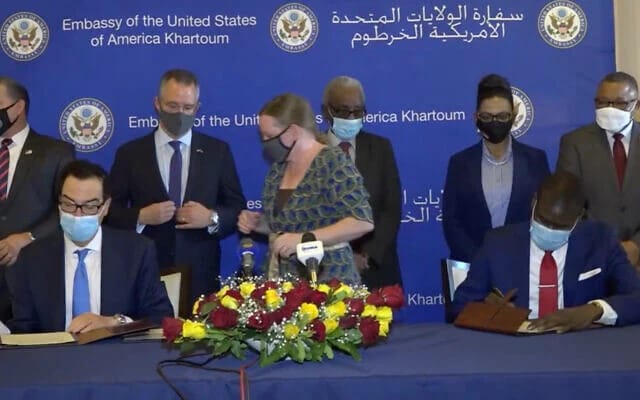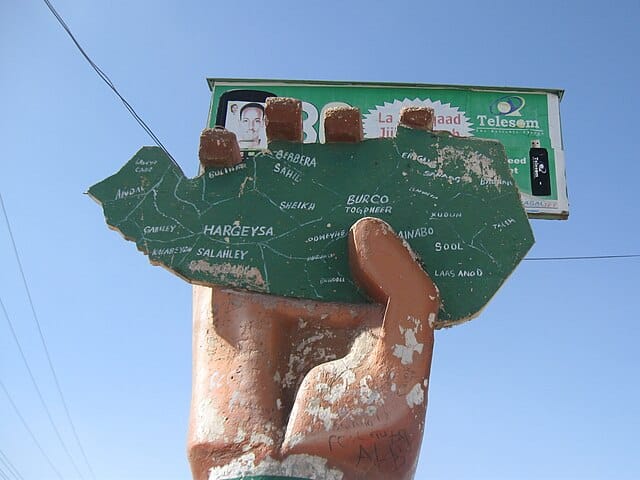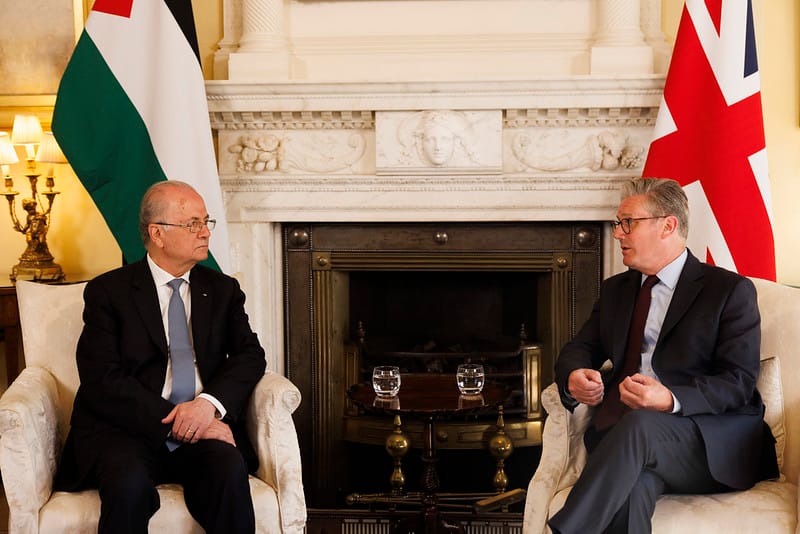Abraham’s Sacrifice: A Tale of Sudan and ‘Normalisation’
What to expect from the impending revival of the Abraham Accords.

The day that Sudan signed onto the US-led Abraham Accords, which entailed the normalisation of relations with Israel, was meant to be a vindication of the Trump administration’s policy toward the Middle East. Instead, that date, 6 January 2021, will be remembered for something else – the descent of the throngs of Trump supporters on the Capitol building in an attempt to overturn the American presidential election results.
In hindsight, one cannot think of a more apt omen for the subsequent fate of the Abraham Accords than the sight of insurgents riding roughshod over all semblances of liberal democratic statecraft. Both were promises of a return to ‘normalcy’, underpinned by a new political consensus, which were ultimately caught blindsided by the violent undercurrents that they hoped to ignore and avoid.
Ultimately, it would not be political crisis in America that would stymie the Abraham Accords. Rather, the transition from Trump to Biden was marked by continuity, with the Democratic administration investing full blind faith in this single-minded diplomatic initiative, to the detriment of a more holistic and responsive approach to the Middle East. Instead, it was the 7 October attacks and Israel’s cataclysmic, destructive response that denied the Abraham Accords any stable foundations to build on.
In the intervening years, Sudan itself has been fundamentally transformed by violence. The government that followed the UAE and Bahrain in establishing formal ties with Israel was the product of a transitional arrangement between key figures in the 2019 Sudanese revolution, and prominent military powerbrokers within the dictatorial regime that the revolution ousted.
By October 2021, these military elements would renege on their commitment to civilian rule and take power for themselves. Less than two years later, following a power struggle between the two main factions of the junta, Sudan descended into civil war. In the year-and-a-half since then, escalating conflict has taken a "grim toll" on the country, in which over half the country’s population face severe food deprivation.
These developments are a far cry from the optimism of a “new era of peace and friendly relations” that greeted the Abraham Accords back in 2020. Indeed, when Trump unveiled the peace plan following a call with Israeli and Sudanese leaders back in October 2020, he hailed it as a “historic’ moment” that would “end Sudan’s long isolation from the world” and “unlock new opportunities for trade and commerce, education and research.” Over four years on from that statement and the US has been accused of abandoning Sudan as its civil war unfolded, and, as for the promised livelihood improvements, we instead find a situation of deteriorating health, educational and food security indicators, alongside abuse and exploitation with impunity.
On the phone with Trump that day back in 2020 were three “terrific people”: “Chairman Abdel al-Burhan and Prime Minister Abdalla Hamdok of Sudan — a beautiful part of the world; and Prime Minister Benjamin Netanyahu — I think you mostly know him.” While the worst one can say about Hamdok was that his technocratic, concessionary leadership style made the 2021 military coup all but inevitable, it is the subsequent records of the other two “terrific people” that truly stand out. The first, General Burhan, has been deemed responsible for war crimes perpetrated under his leadership of the Sudanese Armed Forces (SAF), whereas the third, Prime Minister Netanyahu, has since been issued an arrest warrant by the ICC on the grounds of war crimes and crimes against humanity.
And here lies one of the less remarked upon tragedies of the Abraham Accords, alongside the more explicit outburst of conflict in Israel and Gaza that it helped unleash. This was the attempt to sell a version of ‘peace’ that consolidated and legitimised a coalition of strongmen, usurpers and chancers, lured by the promise of financial reward and regime stability, at the expense of the populations they claim to represent. Unsurprisingly, in the avaricious, hubristic rush to exact these spoils, these leaders have proven willing to risk the very stability and sanctity of their respective domains, and in the process thrust the greater MENA region into a level of conflict and violence wholly unaccounted for.
Rather than reflect on these failures, both the Biden and Trump foreign policy establishment have only doubled down on their commitment to the Accords. And with Trump back in office and a fragile ceasefire in place between Israel and Hamas, it will be all too easy for his administration to pick up where it left off, and pretend like the past 15 months of genocidal violence in Gaza was nothing but a blip.
However, as the Sudan example shows, attempts to impose a new geopolitical configuration on the region from on high, without first addressing the social inequalities, injustices and grievances on which such initiatives are built, are a fool’s errand. Indeed, rather than offer a clear path to peace, the second coming of the Abraham Accords seems to portend a new era of violent impunity, in which, regional powerbrokers, united in transactional self-interest, sleepwalk from crisis to crisis, until the edifice can no longer hold. ▼
Dr Matthew Gordon is an academic and international development practitioner with over a decade of experience working in the Horn of Africa, and an editor at Vashti.
Author

Dr Matthew Gordon is an academic and international development practitioner with over a decade of experience working in the Horn of Africa, and an editor at Vashti.
Sign up for The Pickle and New, From Vashti.
Stay up to date with Vashti.



